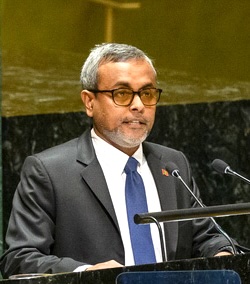 Ibrahim Zuhuree
Ibrahim Zuhuree
Deputy Permanent Representative
Permanent Mission of the Republic of Maldives to the United Nations in New York (PMNY)
Ph.D. in Advanced Policy Studies (’17)
Please tell us about your career path so far. What is your area of specialization and how did you come to work in this area?
My career path has been dedicated to the field of foreign affairs and international relations, with a strong focus on enhancing cooperation, efficiency, and professionalism in the Maldives' foreign service sector. I began as an Assistant Director at the Department of External Resources, Ministry of Foreign Affairs of the Maldives in January 2008, where I oversaw the utilization and maximization of foreign aid in development projects. Subsequently, I served as the Head of the Regional Cooperation Department at the Ministry, focusing on The South Asian Association for Regional Cooperation (SAARC)-related activities, followed by a role as Director responsible for the Social Affairs Division and Secretary-General's Office at the SAARC Secretariat in Nepal. My responsibilities included facilitating the implementation of SAARC Social Charter and promoting regional cooperation in social issues.
After completing my Ph.D., I returned to the Ministry of Foreign Affairs in Maldives as Director, overseeing the International Affairs Department. Here, I coordinated Maldives' campaign for a non-permanent seat on the United Nations Security Council for the term 2019-2020. Later, I served as the Secretary-General at the Maldives Civil Service Commission, implementing obligations under the Civil Service Act and related regulations. From September 2019 until my posting at New York as the Deputy Permanent Representative of the Maldives to the United Nations, I served as the Joint Secretary at the Ministry of Foreign Affairs. My role involved coordinating the work of the Foreign Service Institute of Maldives (FOSIM), supervising the Missions Coordination Section, and supporting the Corporate Affairs Department.
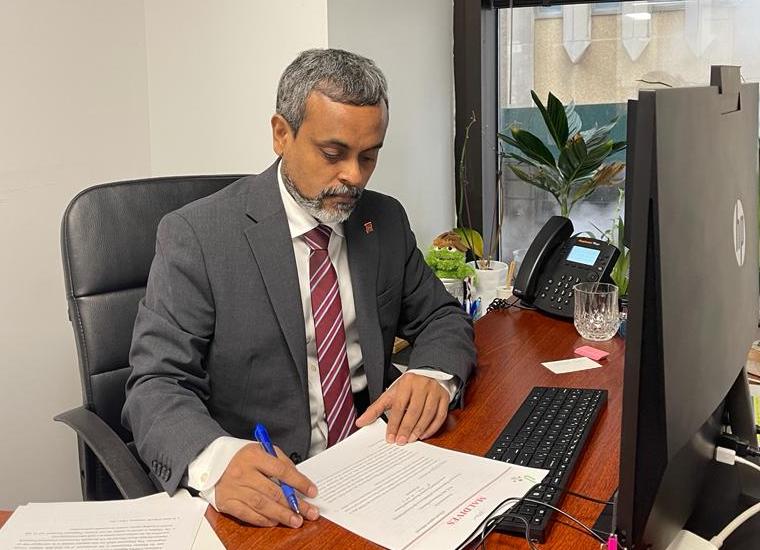
12+ hours of work: In the service of diplomacy
You are currently serving as the Deputy Permanent Representative of the Permanent Mission of Maldives to the United Nations in New York (PMNY). Please tell us about your main roles and responsibilities.
I am a Maldivian diplomat currently serving at the Ministry of Foreign Affairs of the Republic of the Maldives. In my role as the Deputy Permanent Representative of the Permanent Mission of Maldives to the United Nations in New York (PMNY), I have been responsible for the overall management of the PMNY since August 2020. My duties include assisting the Permanent Representative in her various functions and responsibilities. My specific areas of focus include supervising matters related to the Plenary of the General Assembly, the United Nations Security Council (UNSC), and critical issues such as Sustainable Development, Climate Change, Oceans, and Biodiversity. These responsibilities span across the General Assembly and its main Committees, as well as the Economic and Social Council (ECOSOC).
In the PMNY, I lead negotiations for the Maldives within the Alliance of Small Island Developing States (AOSIS) and the G77 and China. As the lead focal point and negotiator on Second Committee-related matters on behalf of the Maldives, my expertise extends to sustainable development, macroeconomic issues, and financing for development. In 2020, I served as the coordinator for the Disaster Risk Reduction Resolution and the Energy Resolution on behalf of the Group of 77 and China. Moreover, in 2022, I spearheaded the Maldives' efforts as part of a core group of five countries that negotiated and adopted the landmark resolution at the UN General Assembly, recognizing the right to a clean, healthy, and sustainable environment as a human right.
My critical role in the adoption of a resolution to establish an “International Day of Women in Diplomacy” underscores the Maldives' commitment to gender equality and the full and equal participation of women at all levels of diplomacy. I also played an instrumental role when the Maldives successfully won the Presidency of the 76th General Assembly (PGA76) and the Human Rights Council for the term 2023-2025. During this period, I managed the Mission's responsibilities while supporting my Minister of Foreign Affairs as the PGA76 and the Permanent Representative as the Special Envoy to the PGA76. Currently, I am in charge of the Maldives' co-chairmanship of the Preparatory Committee of the Fourth UN International Conference for Small Island Developing States.
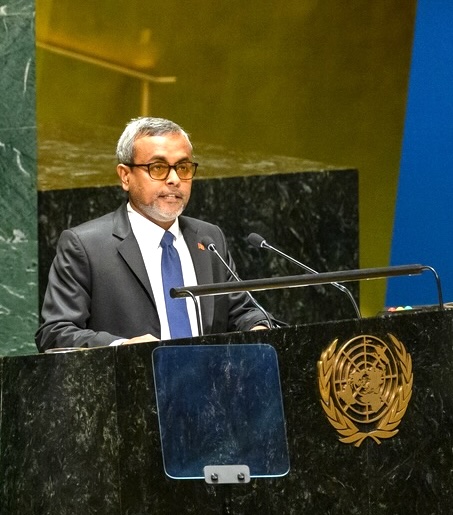
Representing the Maldives at the UN General Assembly.
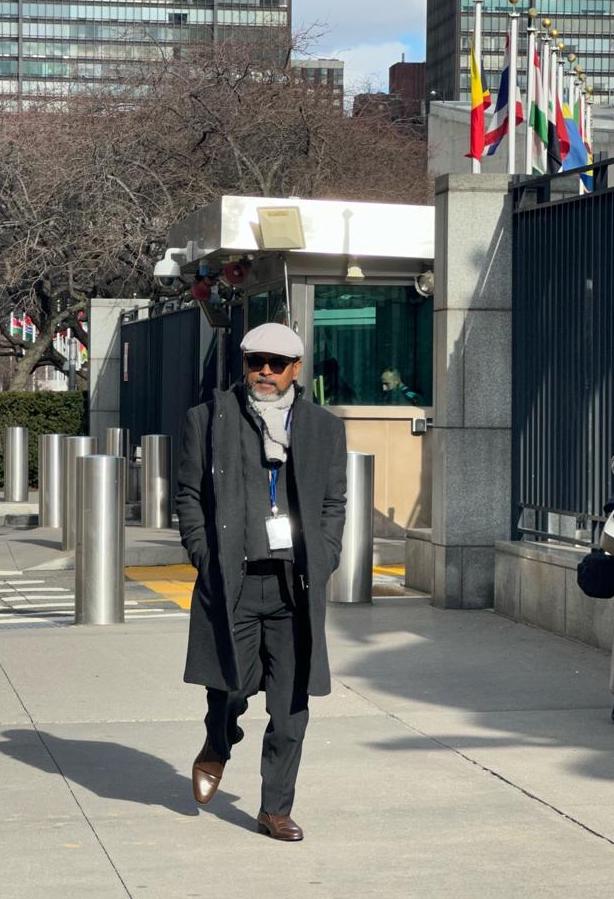
The iconic First Avenue in New York City, near the UN.
In your current capacity, what do you see as the main opportunities and challenges for Maldives over the course of the next five to ten years?
As for the main opportunities, I’d like to mention our potential role in the following three areas.
Enhancing Maldives’ leadership within the multilateral and global sphere: Maldives is co-chairing the Preparatory Committee of the 4th International Conference on Small Island Developing States (SIDS4), scheduled for May 2024 in Antigua and Barbuda. Since the last gathering in Samoa in 2015, SIDS4 has represented the highest-level assembly to evaluate the advancement made towards sustainable development, including the achievement of the 2030 Agenda and its associated Sustainable Development Goals. Co-chairing the Preparatory Committee of SIDS4 provides an opportunity for the Maldives to enhance its leadership within the multilateral and global sphere. This position offers the Maldives an excellent opportunity to highlight our national priorities and bolster our capacity in international negotiations. We can leave our mark as we identify new and emerging challenges and opportunities for the sustainable development of SIDS and devise strategies and means to address them.
Enhancing our Leadership in maritime conservation: Capitalizing on our reputation for sustainable maritime conservation and management, particularly in reducing marine plastic litter and conserving 30% of our terrestrial and marine areas. Utilizing our leadership to diversify the economy, focusing on sectors like sustainable tourism, sustainable fisheries, and the blue economy. Advancing our commitment to sustainable fishing and combating illegal, unreported, and unregulated (IUU) fishing, potentially enhancing our global standing in marine conservation and fisheries management. Maldives has put forward our candidature for ECOSOC 2027-2029; this would be a great opportunity for us to take forward our interest in the UN system.
Strengthening our role as a leader in climate action: Particularly in transitioning from fossil fuels and promoting sustainable agriculture. Developing and implementing cutting-edge solutions for climate adaptation, disaster risk reduction, and locally led adaptation actions, in response to our high exposure to climate change impacts.
As for challenges, the following are some of the most pressing challenges Maldives is facing.
Vulnerability to climate change: Managing the increasing risks posed by climate change, including sea-level rise, coastal erosion, and the associated economic and infrastructure damages.
Access to development finance: Securing adequate development finance and addressing debt sustainability, vital for supporting our environmental and social commitments. Ensuring the fulfillment of international commitments on climate finance, including operationalization of the Loss and Damage Fund and support for developing project pipelines. Utilizing the Multidimensional Vulnerability Index (MVI) for better access to low-cost, long-term finance and debt relief, including reforms in global financial institutions like the World Bank and IMF. Funding is also critical for enhancing infrastructure and services for safe drinking water, sanitation, waste management, and other basic societal needs.
Market access for key products: Gaining preferential access to international markets, especially for Maldives tuna products, while considering the unique challenges of Small Island Developing States (SIDS) like the Maldives.
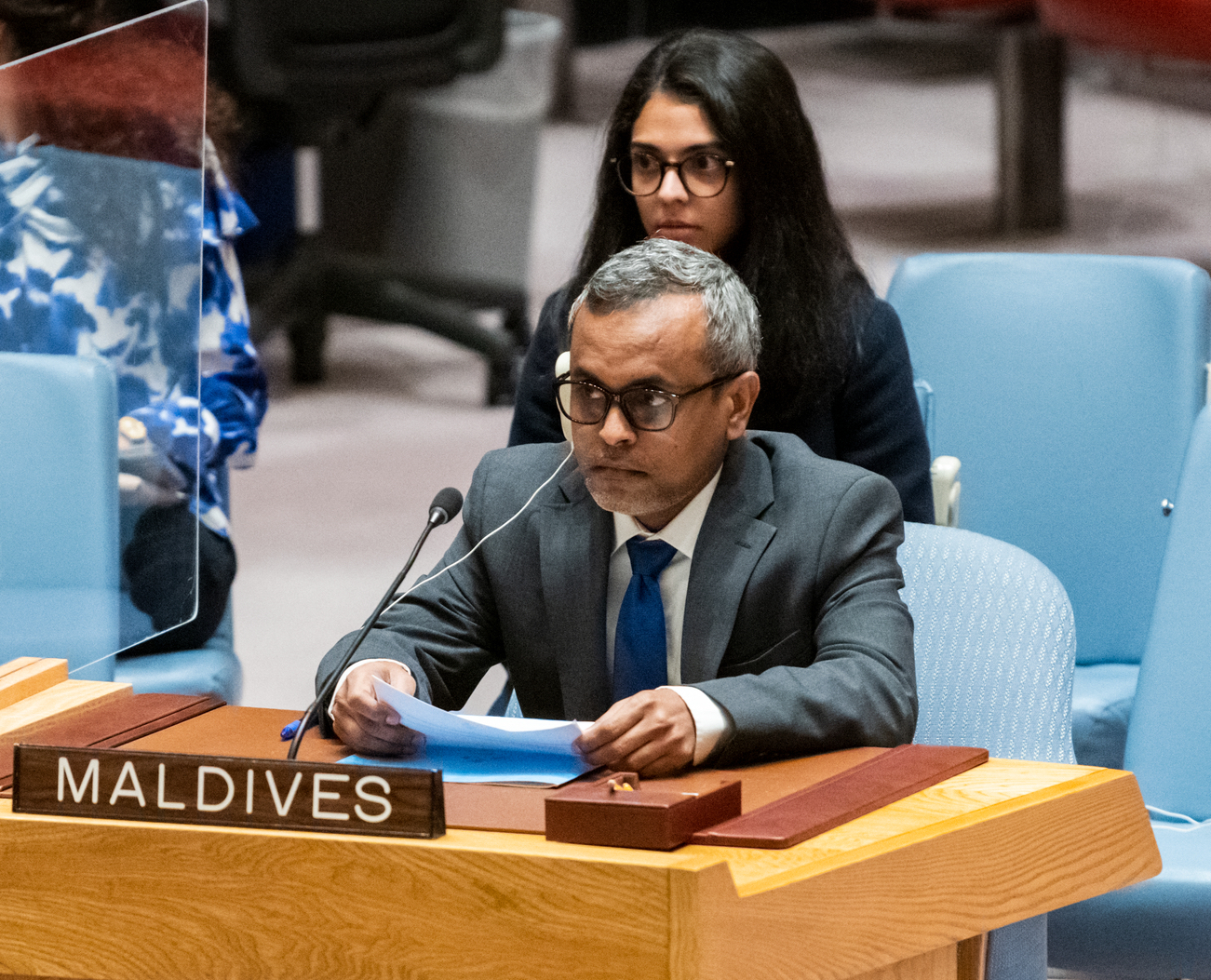
Representing the Maldives at the UN Security Council.
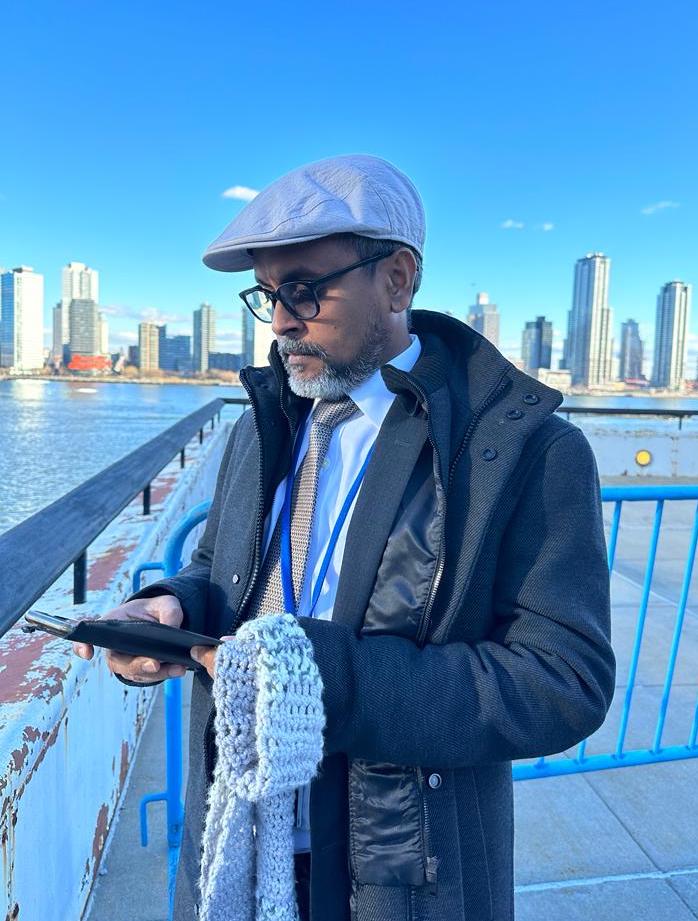
Embracing the relentless pace of work in a worldshaped by technology and long hours of work.
What are some of the biggest challenges you face in your work? And what have been the most interesting or rewarding aspects of your career thus far?
As a Small State at the UN we face capacity constraints due to limited resources and staff. These constraints have a ripple effect on various aspects of our work, affecting follow-up procedures, staff management, and our ability to actively engage in UN elections. The prevalence of "information asymmetry" is another obstacle we confront, as the sheer volume of meetings and events at the UN overwhelms us, resulting in a lack of crucial insider information. This complication hampers our effectiveness in processing and analyzing substantive matters, impeding decision-making across various UN processes.
Among the most rewarding aspects are first of all, leading the Maldives' efforts as part of a core group of five countries that negotiated and adopted the landmark resolution at the UN General Assembly. This resolution recognizes the right to a clean, healthy, and sustainable environment as a human right. Being at the forefront of such a pivotal moment underscores the impact we can make on a global scale.
Being able to play an instrumental role in securing the Presidency of the 76th General Assembly (PGA76) and the Human Rights Council for the term 2023-2025 has been another very rewarding experience in my career.
What led you to GRIPS? What is the most important thing you got out of your studies, and how has your experience at GRIPS prepared you for future endeavors?
The program at GRIPS was meticulously designed to encompass knowledge from various disciplines, especially from International Relations, Economics, and Environmental Studies. GRIPS boasts a faculty of highly experienced professors. Additionally, the program enabled me to engage with both private sector and government officials, significantly enriching my learning experience. The multidisciplinary and rigorous approach proved invaluable for me at the UN, where having expertise in numerous different areas is essential.
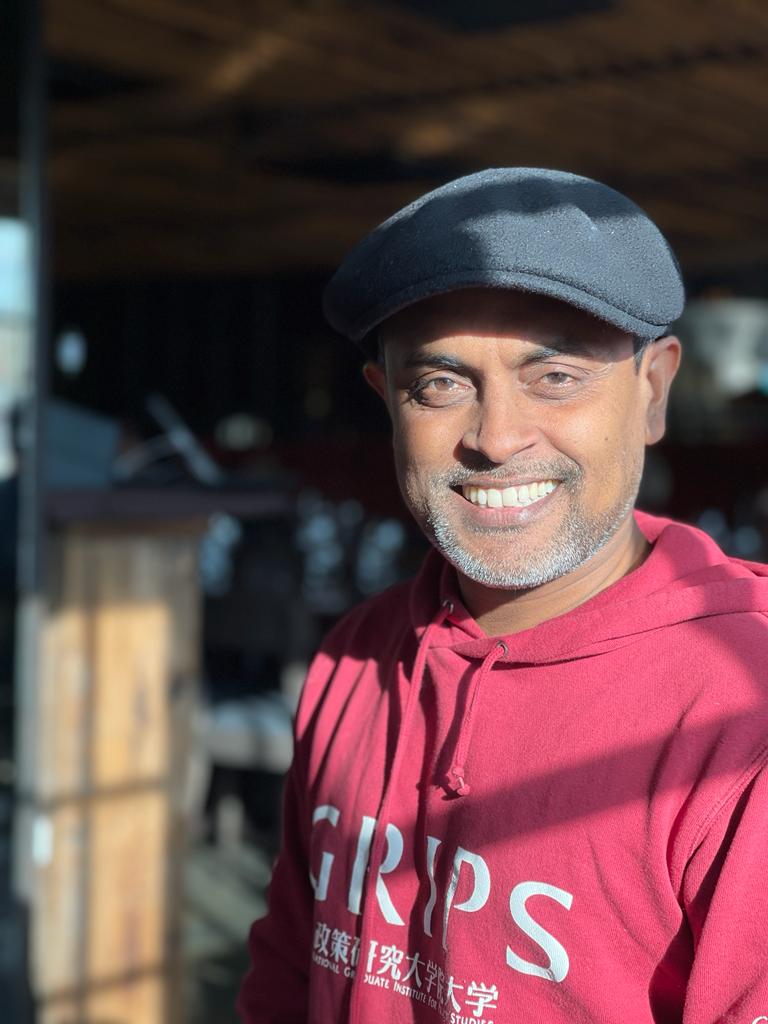
Turning challenges into opportunities is wheresuccess finds its roots
What are some of your fondest memories of your time spent at GRIPS? And what do you miss about Japan?
Reflecting on my time at GRIPS brings forth a flood of fond memories. Beyond the rigorous academic pursuits, I made it a point to explore and travel to various prefectures in Japan, creating priceless experiences. The richness of each journey, from the scenic landscapes to the vibrant local cultures, remains etched in my memory.
I also miss Japanese food and culture. The unique blend of tastes in Japanese dishes, coupled with the immersive cultural experiences, holds a special place in my heart, creating a sense of nostalgia and a desire to revisit those cherished moments.
How do you maintain a balance between your work and the rest of your life? And what is your favorite thing to do when you are not working?
Maintaining a balance between work and the other facets of my life is crucial to my overall well-being. One activity I particularly enjoy when I'm not working is hiking. It provides me with a refreshing break from the demands of my professional life and allows me to reconnect with nature. The peaceful solitude of the trails and the physical exertion involved in hiking contribute to clearing my mind and rejuvenating my energy. It's my favorite way to unwind and strike a healthy balance between my professional and personal pursuits.
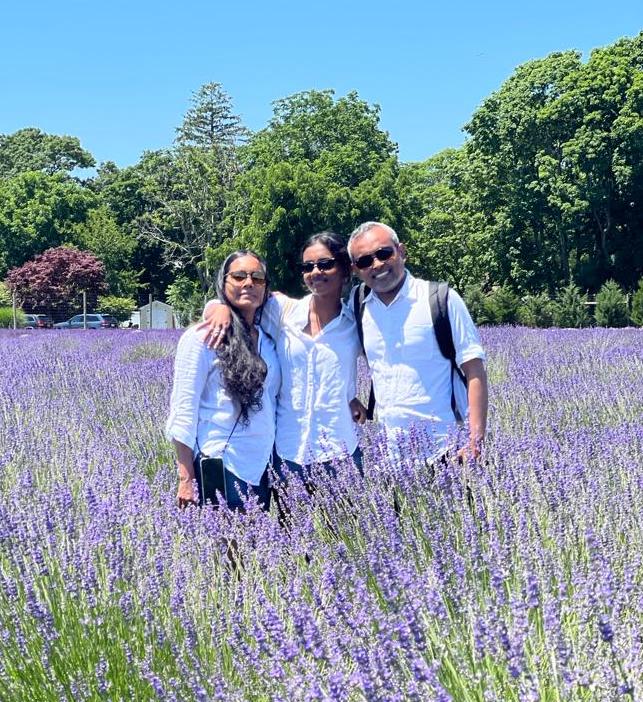
Always find time to enjoy the surroundings, NY
If you could give one piece of advice to anyone considering studying at GRIPS what would it be?
For anyone contemplating studying at GRIPS, my piece of advice based on my own experience would be: consider delving into learning the Japanese language. Embracing the language not only enhances your academic journey but also opens doors to a deeper understanding of the culture and fosters more meaningful connections with the local community. It's a valuable investment that goes beyond the classroom, enriching your overall experience during your time at GRIPS and in Japan.
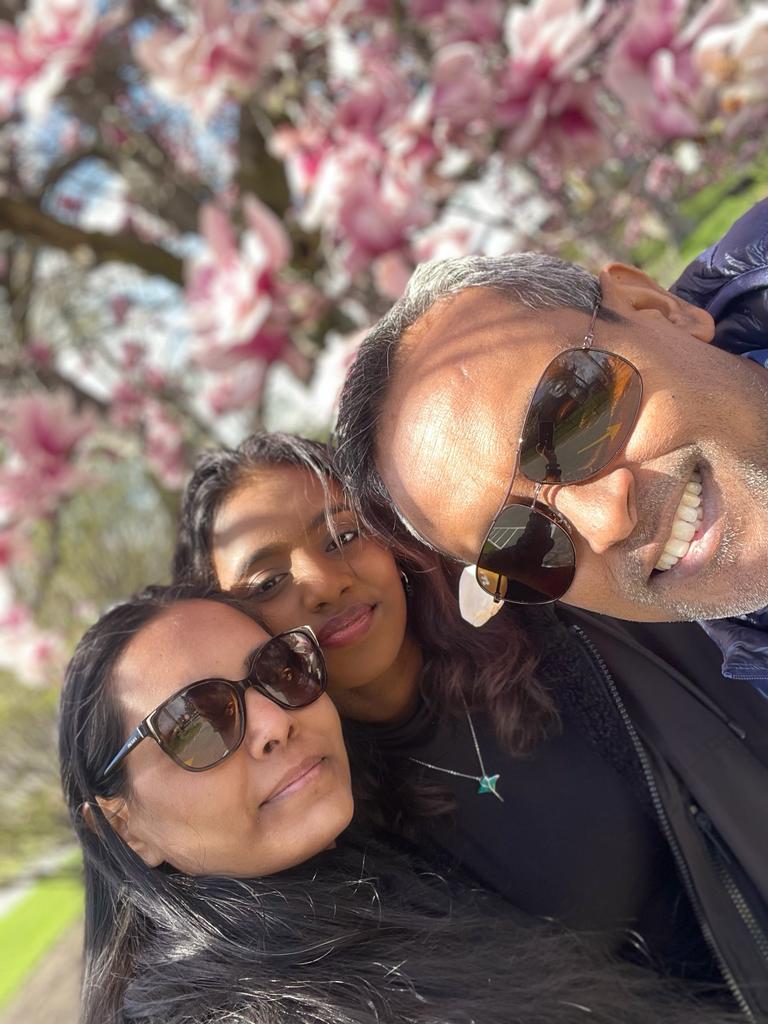
Creating moments with family, Japan.
How would you like to maintain involved with the School? What do you expect from GRIPS as an alumnus and do you have any suggestions on how to further utilize the GRIPS alumni network?
I currently stay engaged with GRIPS through platforms like LinkedIn and the Facebook page. However, I found it disappointing that our email accounts at GRIPS were closed. I had been utilizing that email for academic-related communications, allowing me to express my gratitude to GRIPS as well. Moving forward, I hope to maintain a connection with the school through these online platforms and anticipate continued support from GRIPS as an alumnus.





